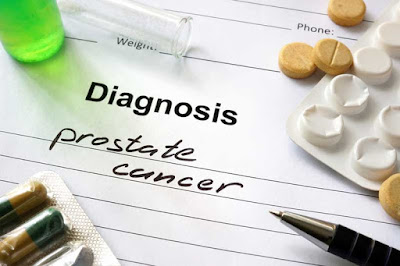Prostate Cancer: Diagnostics & Treatment
Diagnosing prostate cancer involves few tests and once it is diagnosed, multiple options available to treat and cure the disease.
Once you reach urologist or uro-oncologist, they might ask to get few tests done. Tests and procedures used to diagnose prostate cancer include:
- Ultrasound KUB – Simple renal ultrasound which represents the condition of kidney, ureter and bladder. This ultrasound can show the size of the kidney, kidney injury signs, abnormalities present since birth, blockage or kidney stone, complication of urinary tract infection, cysts or tumors and ureter abnormality, bladder capacity, bladder wall thickening, prostate size
- DRE (Digital Rectal Examination) - Doctor consult this as the first test to perform to confirm any nodule in the prostate that could be a cancer as a regular physical examination.
- PSA (Prostate Specific Antigen) – This PSA test measures the value of PSA level (0.1-4.0) in the man’s blood. If someone is a taking 5ARI medication (Dutasteride) which reduces PSA level then for practical purposes, PSA level should be doubled for taking decision about prostate cancer. People above 50 years age should screen go for screening every year. Continuous rise in PSA level may show the sign of prostate cancer.
- MRI - It is an imaging test which is Multi Parametric Prostate MRI and is done to determine the size of prostate, the PIRADS score from and confirmation of cancer.
- Bone Scan – This is a procedure to be done if the report of PSA and MRI coming positive and patient physical symptoms like bone and joint pain.
- TRUS Guided Prostate Biopsy – After the positive results of initial tests like PSA, DRE and bone scan, the urologist may recommend a prostate biopsy. It’s a procedure to remove samples of suspicious tissue from gland to confirm the presence and grading the cancer.
Most of the patients diagnosed with prostate cancer before it spreads to other organs or bone. Prostate cancer cells grow slowly and sometimes not needed immediate treatment. But these patients have to keep under surveillance and should go for regular PSA tests, biopsies and other examinations to determine the presence of cancer.
Now if you are diagnosed with prostate cancer then the treatments available are:
Curative – If the person is diagnosed with stage 1 or stage 2 cancers, a curative steps can be fruitful and can recover patient completely. Few procedures include:- Radical Prostatectomy – Cancer can be removed by Radical Prostatectomy which can be done in three ways; open radical prostatectomy, lap radical prostatectomy or robotic radical prostatectomy.
- Radiation Therapy - For cases that are unfit for radical prostatectomy. In this procedure the radioactive beams are delivered to targeted area of cancerous cells from outside. There are a few types of radiation therapy which includes EBRT (External Beam Radio Therapy), IMRT (Intensity Modulated Radiation Therapy), Stereotactic radiotherapy and brachytherapy.The radiation therapy is the most accurate and very precise. A high dosage can be given by IMRT with some safety will not cause damage to surrounding organs.
Palliative – This treatment is given to people with stage3 or stage4 cancer, where the end results are already decided but to improve the quality of life by controlling cancer symptoms without aiming to cure the disease. For the pain management and to slow down the cancer growth, this treatment is required.
- Hormonal Therapy – This therapy works to block or remove hormones from the body to slow or stop the growth of cancer cells. Prostate and breast cancer encourage the growth of cancer cells, but this therapy may kill, slow or stop the cancer cells from growing. This also causes some side effects to both men and women who also are prevented and managed by supportive care therapies.
- Radiation Therapy - This therapy uses targeted energy like x-rays, photons, electrons or protons to kill cancer cells, shrink tumors and reduce the symptoms of cancer. This helps stop the growth of cancer cells. This treatment can be given alone or in combination with hormone therapy, chemotherapy and/or immunotherapy for better results. This therapy also comes with some side effects like skin reactions, fatigue and lymphedema.
- Immunotherapy - Our immune system is the best defense system of body to counter and attack any diseased cells, infections or defective cells. This therapy focuses to empower body immune system to fight against cancer cells. This also gives some side effects like fatigue, nausea, diarrhea and flu-like systems which can be controlled by supportive care services. This therapy helps to reduce the symptoms of cancer to improve the quality of lifestyle.
- Chemotherapy - This uses anticancer drugs to stop or slow down the growth of quick dividing cancer cells in the body. This therapy is used to improve the quality of life and can cure the disease (if diagnosed stage1 or stage 2). Doctor recommendation on type and dose of chemotherapy depends on certain factors like type of cancer, infected organs, and age and general health issues. This therapy may show some side effects like tiredness, dry or sore mouth, weight loss, upset stomach, vomiting, and hair loss.
for more info- https://lucknow.apollohospitals.com/




Comments
Post a Comment